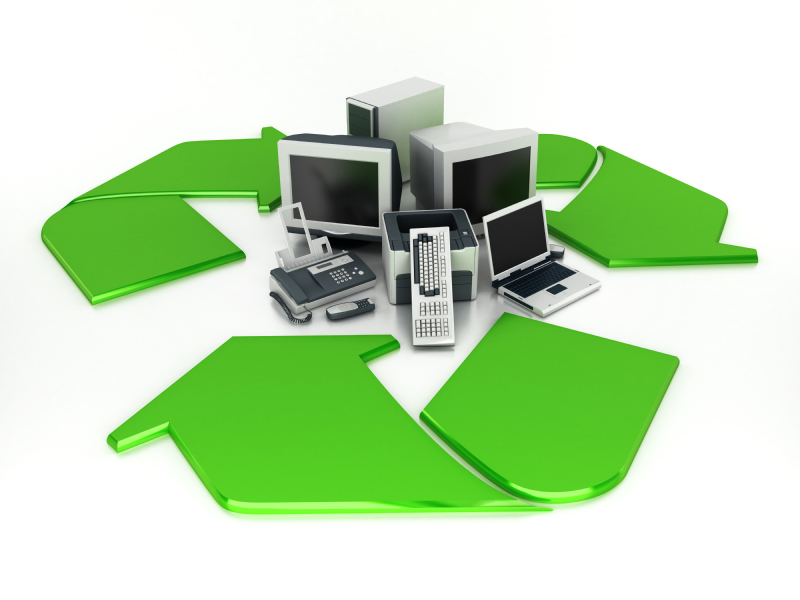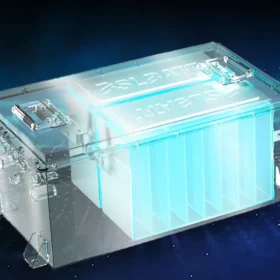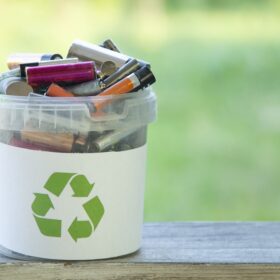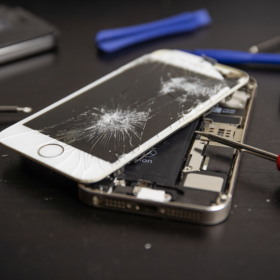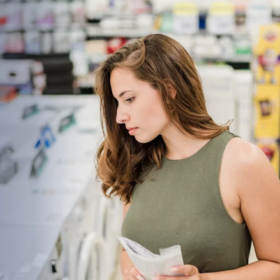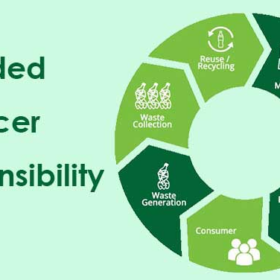Quick links to article content:
Understanding WEEE
The Role and Importance of Producer Responsibility Organizations in Estonia
Producer Responsibility Organizations (PROs) in Estonia
WEEE management in Estonia
Join the most effective producer responsibility organisation in Estonia
Frequently asked questions on Waste from Electrical and Electronic Equipment (WEEE) in Estonia
Related concepts and useful materials
Our WEEE collection points in Estonia
What is Waste from Electrical and Electronic Equipment (WEEE)? The Role and Importance of Producer Responsibility Organizations in Estonia
WEEE is a term used to describe end-of-life electrical and electronic appliances – anything powered by electricity or a battery. This encompasses a wide array of items, from large household appliances like refrigerators and washing machines to smaller devices like mobile phones, laptops, and even electronic toys.
Understanding WEEE
In our modern, technology-driven world, it’s nearly impossible to imagine life without electrical and electronic equipment. However, as these devices reach the end of their lifespan, they become waste – more specifically, Waste from Electrical and Electronic Equipment (WEEE).
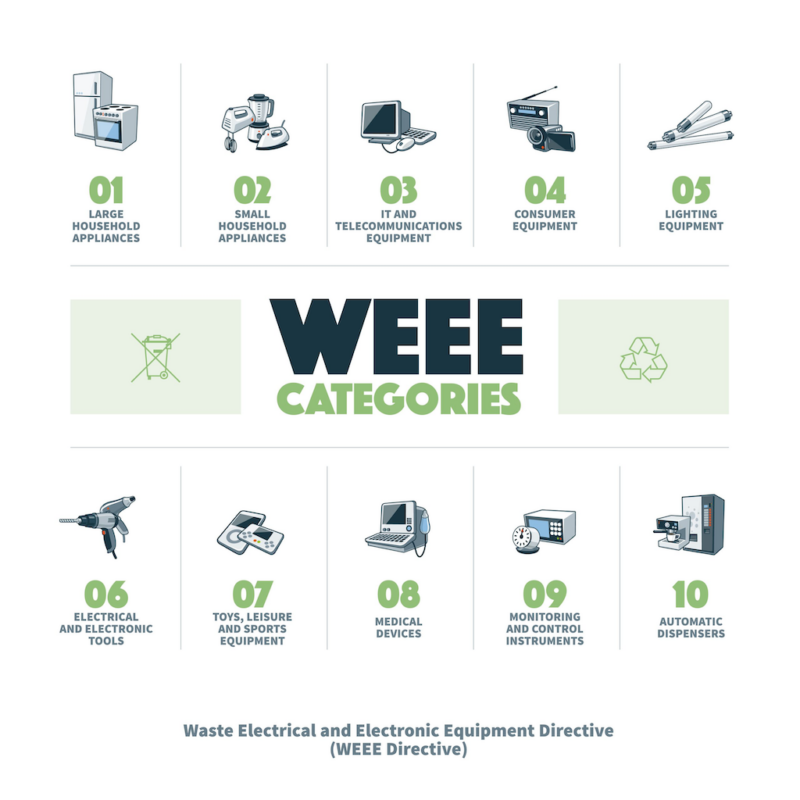
Unfortunately, WEEE is not just regular waste. These items often contain hazardous substances such as heavy metals and chemicals. If not handled properly, these substances can harm the environment and pose health risks. Furthermore, electronic devices often contain valuable resources like gold, silver, copper, and rare earth metals, which can be recovered and reused, reducing the need for virgin material extraction and thus environmental impact.
The Role and Importance of Producer Responsibility Organizations in Estonia
Given the growing amount and complex nature of WEEE, its management requires a systematic and sustainable approach. This is where Producer Responsibility Organizations (PROs) come in.
In many countries, including Estonia, producers of electrical and electronic equipment are legally responsible for the end-of-life management of their products. This concept, known as Extended Producer Responsibility (EPR), is central to the European Union’s Waste Electrical and Electronic Equipment Directive, which Estonia has adopted into its national legislation.
Estonian producers, importers, and retailers must register their products, report on their sales, and ensure that a system is in place to collect and properly manage their products once they become waste. While this can be a complex task for individual businesses, especially small- and medium-sized enterprises, PROs simplify the process.
Producer Responsibility Organizations (PROs) in Estonia
A PRO is a professional organization that takes on the EPR obligations on behalf of its members, who are producers of electrical and electronic equipment. PROs, such as Eesti Elektroonikaromu, one of the most effective PROs in Estonia, handle the collection, treatment, and recycling of WEEE. They also manage the necessary reporting to environmental authorities.
PROs play a critical role in the sustainable management of WEEE. By joining a PRO, companies not only ensure compliance with WEEE regulations but also contribute to environmental sustainability and the circular economy.
WEEE management in Estonia
Understanding what WEEE is and the importance of proper WEEE management is crucial in our electronics-laden era. In Estonia, PROs like Eesti Elektroonikaromu play an essential role in ensuring that WEEE is managed sustainably and in compliance with national and EU regulations. As a producer, dealer, retailer, or even consumer, we all have a role to play in responsible e-waste management. After all, in the face of environmental challenges, every step towards sustainability counts.
Join the most effective producer
responsibility organisation in Estonia.
We collect and recycle electronics, batteries and accumulators.
We organise e-waste reporting.
Frequently asked questions on Waste from Electrical and Electronic Equipment ( WEEE) in Estonia
WEEE stands for Waste from Electrical and Electronic Equipment. It refers to end-of-life electrical and electronic appliances – anything that is powered by electricity or a battery. This encompasses a wide range of items, from large household appliances like refrigerators and washing machines to smaller devices like mobile phones, laptops, and even electronic toys.
WEEE is considered hazardous because it often contains potentially harmful substances such as heavy metals (like lead, mercury, and cadmium) and chemicals. If not handled and disposed of properly, these substances can harm the environment and pose health risks.
Ideally, WEEE should be collected and treated by specialized facilities. It undergoes a process to remove hazardous components, then it is recycled. The recycling process recovers valuable materials like metals, which can be reused, reducing the need for virgin material extraction and thus environmental impact.
A PRO takes on the Extended Producer Responsibility (EPR) obligations on behalf of its members, who are producers of electrical and electronic equipment. PROs handle the collection, treatment, and recycling of WEEE, and manage the necessary reporting to environmental authorities. They play a crucial role in the sustainable management of WEEE and help their members comply with WEEE regulations.
Eesti Elektroonikaromu pakub veebipoodidele mitmeid teenuseid, mis aitavad neil täita oma kohustusi seoses elektroonikajäätmete taaskasutuse ja kõrvaldamisega. Need teenused hõlmavad jäätmete kogumist, transporti, taaskasutamist ja kõrvaldamist.
As a consumer, you can help manage WEEE by disposing of your old electrical and electronic equipment responsibly. Instead of throwing it in the regular trash, take it to a designated collection point, often provided by local authorities or retailers. This ensures that the WEEE is handled and recycled properly. Also, when buying new electronic equipment, consider choosing those brands and retailers that partner with PROs and support responsible e-waste management.
WEEE often contains substances that can be harmful if not managed correctly. These include heavy metals such as lead, mercury, and cadmium, which can be toxic, and other hazardous substances like polychlorinated biphenyls (PCBs), brominated flame retardants, and certain types of plastic additives.
When not properly managed, WEEE can lead to severe environmental issues. The hazardous materials it contains can leach into the environment, contaminating soil, water, and air. For example, heavy metals can accumulate in living organisms, disrupting ecosystems and posing risks to human health through the food chain.
The hazardous materials in WEEE can lead to various health risks if humans are exposed to them. For instance, lead and mercury can damage the nervous system; cadmium can cause kidney damage; and certain types of flame retardants can disrupt hormone function. People can be exposed to these materials through direct contact, inhalation of dust or vapors, or ingestion of contaminated food or water.
The risks associated with WEEE can be mitigated by proper management, which includes collection, safe storage, and environmentally sound recycling and disposal. This often involves separating hazardous components and treating them to reduce their harmful properties or safely storing them in secure facilities.
PROs, such as Eesti Elektroonikaromu in Estonia, play a crucial role in managing the risks associated with WEEE. They ensure that WEEE is collected and treated properly, including the removal of hazardous components and the safe recycling of materials. By fulfilling their responsibilities, these organizations help to protect the environment and human health from the potential risks posed by WEEE.
Related concepts and useful materials
Some key terms and references related to WEEE producer responsibility for online shops selling electronic equipment include:
WEEE (Waste Electrical and Electronic Equipment) Directive: the EU directive on waste electrical and electronic equipment. The Directive imposes obligations on producers, sellers and importers to recover and dispose of these products.
Waste Act: the law in Estonia that regulates the generation and management of waste, including the implementation of the WEEE Directive in Estonia.
Producer Responsibility Organisation (PRO): An organisation that assists producers and sellers in meeting their obligations regarding the recovery and disposal of their products. In Estonia, one of the best known TVOs is Eesti Elektronikaromu.
Producer Responsibility: The responsibility of manufacturers, importers and sellers to ensure that their products are treated in an environmentally sound manner at the end of their life.
WEEE: Electrical or electronic equipment that has become unusable and must be recycled or properly disposed of.
References:
- WEEE Direktiiv – direktiiv 2012/19/EL
- Eesti Jäätmeseadus
- Tootjavastutusorganisatsioonide tegevuse korraldamine (Eesti Keskkonnaministeerium)
- Price List Changes Effective from 1 January 2026
- The New EU Battery Regulation
- Mandatory information on producers’ and distributors’ websites on the collection of waste electronics and batteries
- Obligation to repair now as a law: the European Parliament obliges manufacturers to repair broken products
- Notification Obligation for Retailers and Online Stores in Electronic Waste Management
- Extended Producer Responsibility

